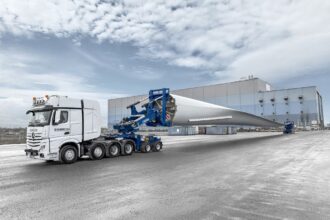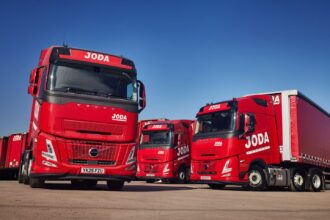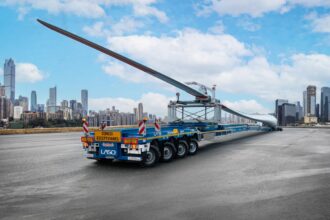BPW Bergische Achsen KG, the international mobility partner and system partner for the transport industry, is investing in a new production facility for wheelends at its Wiehl site. Production is scheduled to commence in mid-November.
The individual components pass through a total of 15 stations on their way to the finished product: from feeding in the wheel hub up to the test rig. The entire production is highly automated. The new assembly line was specially developed for BPW’s complex production processes in Wiehl and makes use of state-of-the-art production methods. For example, greasing of bearings and axle nuts is controlled by the latest sensor technology. “We constantly invest in our production so that we can provide our customers with the best possible products at all times. Wheelend assembly is one of the key areas of our production in Wiehl. Here, as in all our other plants, we attach the utmost importance to state-of-the-art technologies, efficiency and sustainability”, says Michael Pfeiffer, personally liable managing partner of BPW Bergische Achsen KG.
The subject of employee health – ergonomics for the 60+ generation – also played a decisive role in the development of the new wheelend assembly. For example, the manual work stations on the assembly line are height-adjustable and adapt automatically to the operator’s body height to make the work as easy as possible on the back.
All relevant manufacturing and assembly processes as well as quality and functional testing are documented in a production control system and can be traced back at any time. “For example, we record the specific insertion force applied to every single bearing”, explains Ralph Ley, Head of the System Components Business Unit at BPW. “Thanks to this comprehensive documentation, we are able to trace back all manufacturing steps of each individual running gear. This procedure is an intrinsic part of the quality principles that apply in our production all over the world. They enable us to offer consistently high product quality and reliability.”




